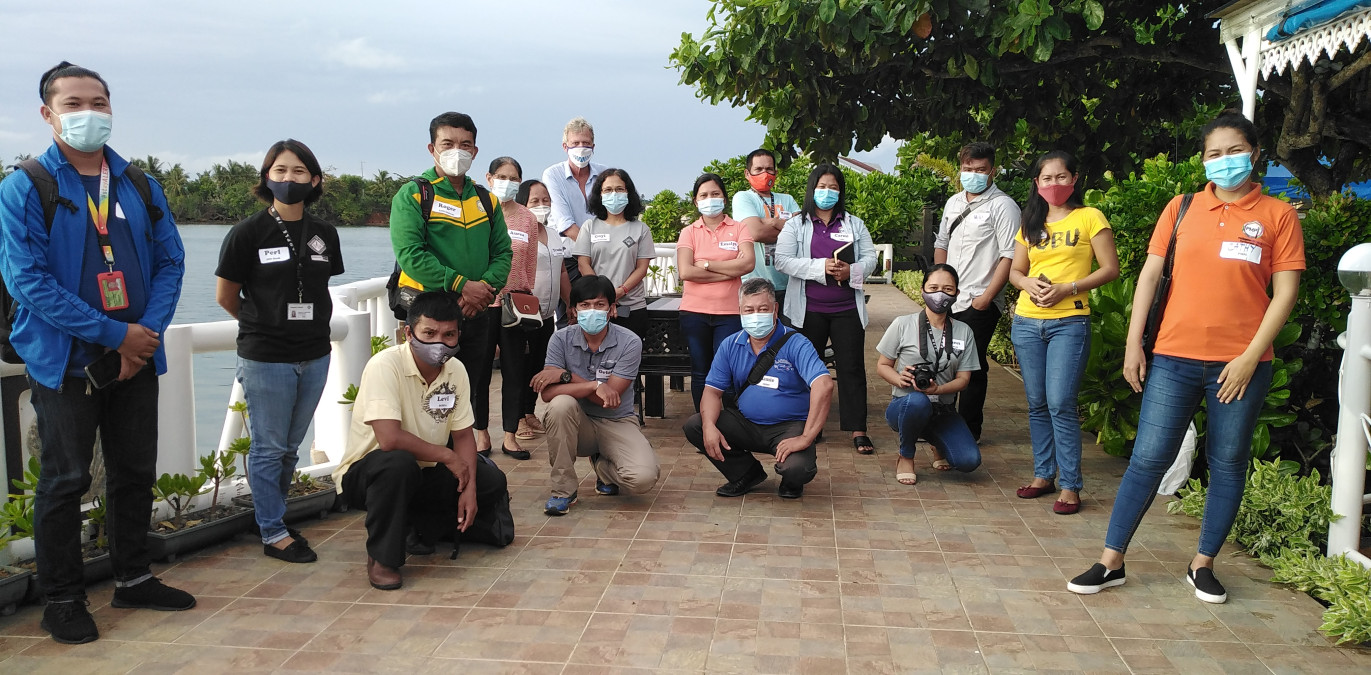Charting agricultural futures in the Philippines
Published: Nov 12, 2020 Reading time: 3 minutes Share: Share an articleDespite the challenges, agriculture remains a key source of income for people on Samar Island, Philippines. In past years, farmers concentrated on growing coconuts, bananas, and rice. Lately, however, prices for coconuts have been falling, and banana and coconut growers have been hurt by a series of typhoons that have hit the island. Rice farmers are also constantly struggling to compete with cheaper imports from other regions.

One of the clearest signs of these changes is the decline in young people involved in the agricultural sector. The youth prefer to look for alternative livelihoods by moving to cities or trying to find work abroad. Samar’s favourable climate and fertile soil could still offer good opportunities for local farmers, but for agriculture to become more profitable, a future generation of farmers is needed.
Gathering local insights
In October 2020, People in Need (PIN) brought together representatives of farmer groups, local and national government agencies, the private sector, academics, and citizens organisations in Eastern Samar for discussions about the future of agriculture on the island.
During the discussions, participants concentrated on three objectives. The first was to identify what crops are currently essential to the island’s economic needs. The groups identified coconuts, cassava (a popular root crop), bananas, and rice as the key agricultural products, along with calamansi (a small local variety of the lemon) and seaweed products.
Envisioning the next five years
The second objective was to consider which crops had the most potential to lift small farmers out of poverty over the next five years. Discussions focused on geographical conditions, market potential, resilience to external shocks (mainly typhoons), climate change, and cultural aspects. This portion of the programme produced lively debates about the pros and cons of the various potential crops, the importance of food security, and the cultural significance of crops, among other issues. Alternatives such as bamboo were explored, but agreement was reached that significant market research would be required to pursue this crop.
Perhaps the most remarkable outcome was the consensus reached on cacao’s potential for the island. Although cacao is not a traditional crop in Eastern Samar, the conditions on the island are quite favourable for growing cacao. As a result of this community-directed focus, PIN launched a cacao promotion programme, which has caught the attention of local farmers and government officials. Interest in cacao production is high, and it is now viewed as economically profitable and more climate resilient than traditional alternatives.
Discussants also agreed that coconuts and cassava still have potential, albeit their potential is more in their value-adding activities rather than in the basic growing. For example, whereas prices for the copra (dried coconut flesh) have been declining, coconut oil remains in high demand. Meanwhile, many alternative uses for cassava are possible but would also require significant research to identify potential markets. Ultimately, participants agreed that diversification into value-adding activities is one way forward. Coconuts also play an essential role in the cultural heritage of the people in Samar and, as such, will likely remain an important crop for the region whether it is profitable or not.
A question of leadership
The final objective was to consider who could help lead the process of change. Government authorities will obviously play an essential role, but they will need support from other stakeholders such as local farmer cooperatives, and local and international organisations like PIN.
The roundtable discussions were an important step in bringing various sectors together and in thinking more strategically about what is needed to give small farmers in rural areas like Samar a better future. For PIN, participants’ input is critical for the development of future activities and planning. This is just the beginning of a longer process that will hopefully bring about positive change for the often-neglected people of Samar.



